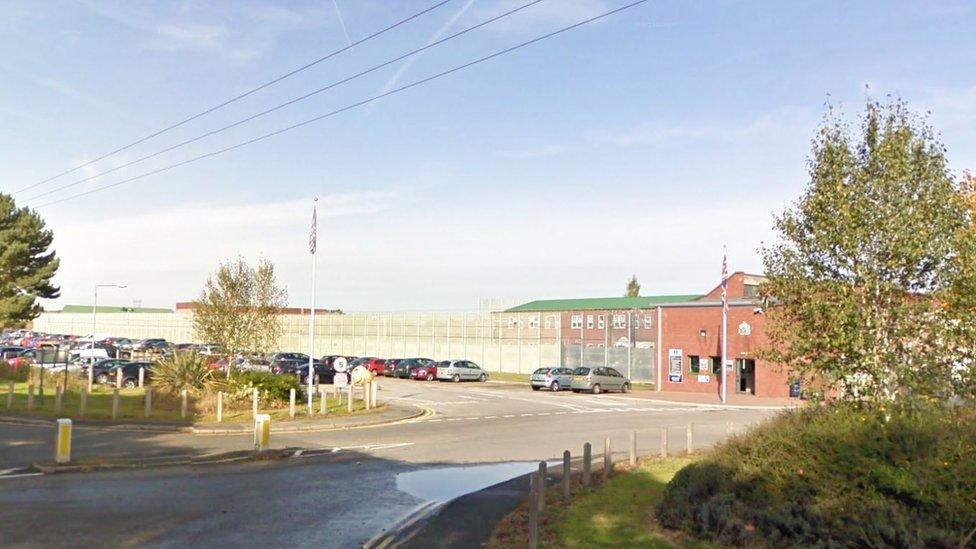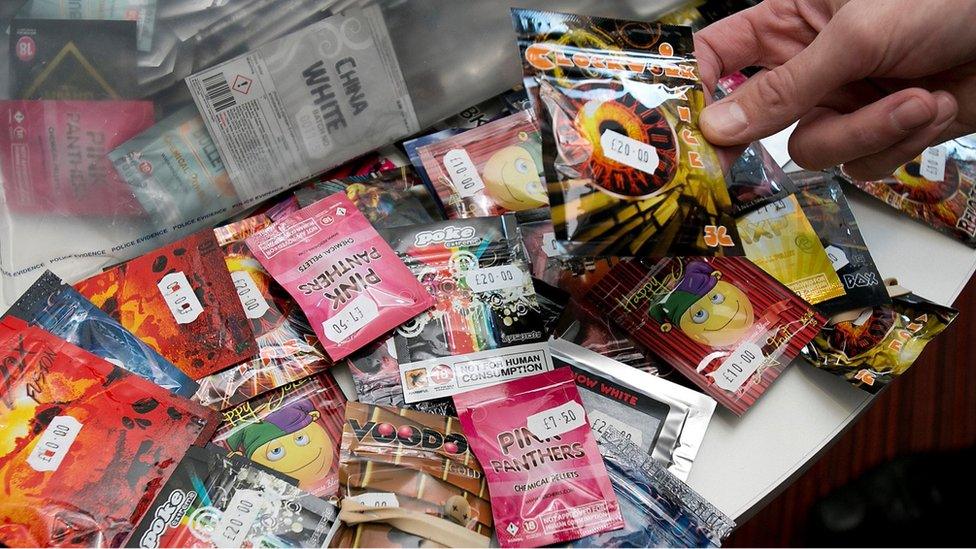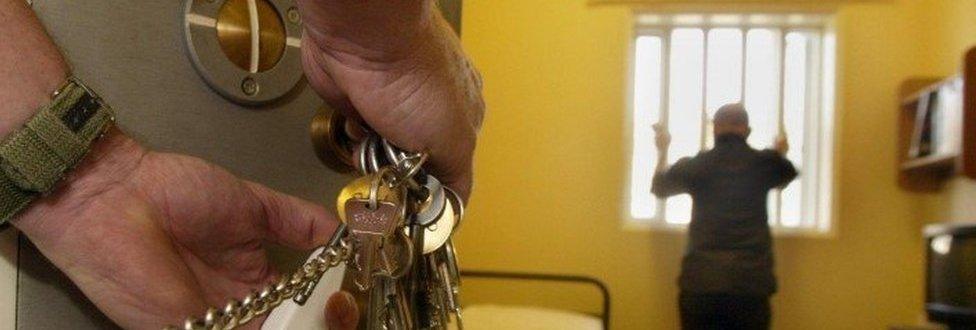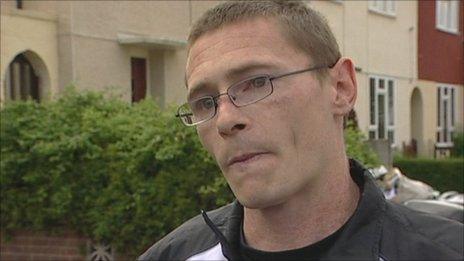Ranby Prison report: Legal highs 'could overwhelm prison'
- Published

The number of violent incidents at HMP Ranby was higher than in similar establishments, the report said
Prison inspectors are warning that a jail is at risk of being "overwhelmed" by a flood of psychoactive substances known as "legal highs".
A report said, external prisoners at HMP Ranby in Nottinghamshire "forcibly" seized a package containing new psychoactive substances from prison staff.
The National Offender Management Service said the prison's population was reduced following the inspection.
The report also highlighted six suicides in the space of 17 months.
Another death at the prison is being treated as manslaughter.
'Too many prisoners'
A Prison Service spokeswoman said sniffer dogs, cell searches and mandatory drugs tests are used to find drugs but "it's clear we need to do more".
"The Justice Secretary has asked the Ministry of Justice to look at how we can ensure prisons have the right tools in place to tackle this problem," the spokeswoman said.
Frances Crook, chief executive of the Howard League for Penal Reform, said drugs are a symptom of a "much deeper problem" - too many prisoners and not enough staff.
"People are getting the drugs and the staff don't know the drugs are there and can't deal with the drugs because there aren't enough staff and there are too many prisoners," she said.
"I'm not by any means blaming the governor and staff because every prison is in the same situation.
"We have to reduce the number of people in prison, we just have to... We are the imprisoner of Europe."

The HM Inspectorate of Prisons report detailed concerns that:
Too many prisoners were held in the large house blocks with staff working there saying they felt unsafe
The number of violent incidents was higher than in similar establishments
Assaults on staff had increased significantly and a number of "very serious incidents" had occurred
In the space of 17 months between inspections there had been six suicides


New psychoactive substances are products chemically designed to mimic drugs that are already banned
The report also disclosed that some prisoners under the influence of new psychoactive substances were left with fellow inmates to check their condition did not worsen as health services struggled to treat the most seriously affected.
New psychoactive substances (NPS) are chemically designed to mimic drugs that are already banned.
Martin Lomas, deputy chief inspector of prisons, said the jail, which holds 1,000 men, faces the challenge of "destabilising the supply of NPS which threatens to overwhelm it".

Analysis

By Danny Shaw, BBC home affairs correspondent
Last week, inspectors severely criticised conditions at Leicester Prison. The report into Ranby is even worse.
It says there are serious concerns about the prison's "stability" and the safety of inmates and staff. In the 17 months after the last inspection six prisoners took their own lives.
Inspectors blame the problems on what they say is a "dangerous mix" of staff absences, lack of work for prisoners and changes to the regime. That's compounded by a "surge" in the use of new psychoactive substances, known as "legal highs", which is fuelling violence.
The report says in one incident a group of prisoners "muscled" their way into an office to retrieve a package of drugs thrown over the prison walls.
Officials say they've reduced Ranby's population, increased staff numbers and are preparing to introduce new drug tests in prisons across England and Wales.

Michael Spurr, chief executive of the National Offender Management Service, said since the inspection in September the number of inmates had been reduced by 120 and the number of staff had increased.
However, he said: "NPS remains a real concern in prisons and we are introducing a new testing regime which will be rolled out across the country from April.
"Legislation is in place to ban so-called 'legal highs' and we will continue to work with police to disrupt supply chains and take robust action against anyone found supplying or using NPS in prisons."
Inspectors said there were signs of improvement in some areas and were pleased to find fewer prisoners had said they felt unsafe or victimised.
This was still significantly higher than prisons of a similar size, however.
The inspections were carried out on 24-25 August, 1-4 and 7-11 September 2015.
- Published23 October 2015

- Published19 June 2015

- Published18 June 2015

- Published27 May 2011
